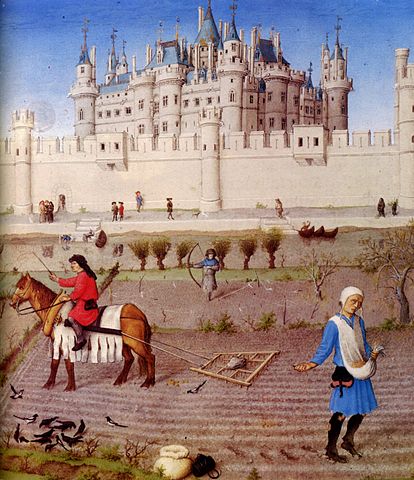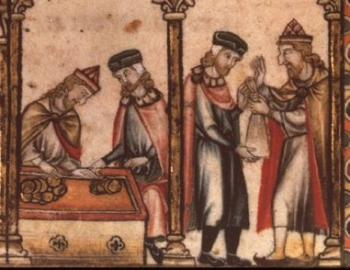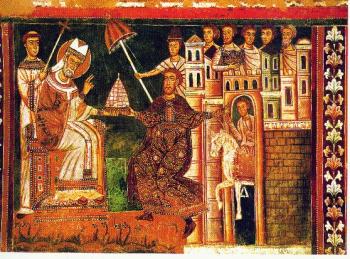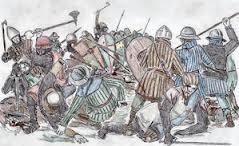The Middle Ages refers to the span of time in Europe between the fall of the Roman Empire and the beginning of the Renaissance. Many scholars choose to use this term because there was a distinct lack of scientific advancements, less trade, fewer cities and less cultural output  than the original Roman Empire and the following Renaissance period¹. The early Middle Ages was an uninspiring time in Europe’s history compared to its bookend periods. People were generally uneducated, literacy rates very low relative to the rest of the developing world and feudalism was the dominant social order throughout Europe from 500 - 1500.
than the original Roman Empire and the following Renaissance period¹. The early Middle Ages was an uninspiring time in Europe’s history compared to its bookend periods. People were generally uneducated, literacy rates very low relative to the rest of the developing world and feudalism was the dominant social order throughout Europe from 500 - 1500.
The purported darkness of the Middle Ages in Europe is often exaggerated. Global warming brought grapes and other crops to England around 1000, doubling the population before the warming ended and the Black Death arrived from the East². Life expectancy was actually slightly longer than previous generations that lived before the fall of the Empire. Thomas Aquinas and Hildegard of Bingen were also important theologians that lived during Medieval times¹<.
Europe adopted a localized feudalistic system in replacement of the centralized government that had preceded it. This system was based on reciprocal relationships between lords who owned land and the vassals who protected it. Lords were also vassals to more important lords, such as the King. The small scale, local nature of the feudal system was well-suited for a time and place where the threats to people’s safety were also small scale and local¹.
1. The Dark Ages...How Dark Were They, Really?: Crash Course World History #14. Retrieved from http://www.youtube.com/watch?v=QV7CanyzhZg
2. How Dark Were the Middle Ages? Retrieved from https://www.prageru.com/courses/history/how-dark-were-dark-ages



